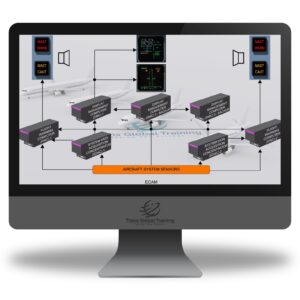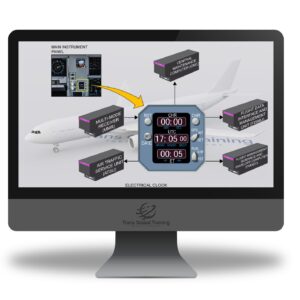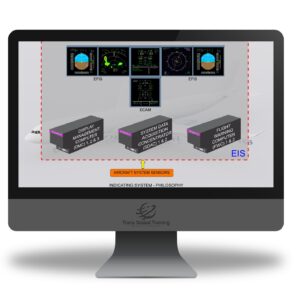
Shop
A350 RR TRENT XWB Continuation Training
£375.00
Our Courses Scale Perfectly To Any Device
About our Online Self-Study Course
The A350 Continuation Training course with RR Trent XWB powerplants, has been designed to give you a complete technical refresher of all aircraft systems and meets ATA 104 Specification Level 1 and EASA Part 66 Level 1 as a minimum. The A350 Continuation Training course with RR Trent XWB powerplants, covers all mechanical and avionics systems. We also include links to any relevant incidents, Airworthiness Directives and maintenance incidents. The final chapter covers new relevant aviation technology. This self–study online A350 Continuation Training course with RR Trent XWB powerplants, will take approximately 40 hours of study. Students must pass the multi-choice question at the end of each ATA chapter before the next ATA chapter is unlocked. A completion certificate is issued on successful completion of the course.
You have 12 months from enrollment to begin the course and after starting, 6 months to complete the course. You have a further 90 days to review the course after completion.
Click on the DESCRIPTION below for course syllabus and more details. Please click here to view our sample course.
When checking out, please ensure you use the student’s name. To enroll multiple students in the same course, please make separate transactions or contact us for team discounts.
Description
A350 RR TRENT XWB CONTINUATION TRAINING COURSE
ABOUT
The A350 Continuation Training course with RR Trent XWB powerplants, meets a minimum of ATA 104 Specification Level I; A brief overview of the airframe, systems and powerplant as outlined in the Systems Description Section of the Aircraft Maintenance Manual.
The A350 Continuation Training course with RR Trent XWB powerplants, also complies with EASA’s knowledge LEVEL 1 definition as contained in Regulation EU No. 1321/2014, Part 66, Appendix III Basic Knowledge Requirements;
A familiarisation with the principal elements of the subject, with the objective;
(a) The applicant should be familiar with the basic elements of the subject.
(b) The applicant should be able to give a simple description of the whole subject, using common words and examples.
(c) The applicant should be able to use typical terms
This self-study online A350 Continuation Training course with RR Trent XWB powerplants, will take approximately 40 hours of study. Students must pass a multi-choice question at the end of each ATA chapter before the following ATA chapter is unlocked. A completion certificate is issued on successful completion of the course.
Course objectives: upon completion of the course, the student will be able to identify safety precautions related to the airframe, it’s systems and powerplant.
Identify maintenance practices important to the airframe, it’s systems and powerplant
Define the general layout of the aircraft’s major systems.
Define the general layout and characteristics of the powerplant.
Identify special tooling and test equipment used with the aircraft.
SYSTEM REQUIREMENTS
Our courses scale perfectly to PC, Laptop, tablet, android and iPhone. You must have an internet connection to use our courses.
STUDY TIME
Course completion time varies with the individual; however, we estimate approximately 40 hours will be required. You have 6 months to complete the course and can stop and restart at the same position with your progress saved. Once completed you will have a further 90 days to review the course.
SUPPORT
Should you require any assistance during your course, please contact us and we will assist you during normal working hours.
WHY USE OUR REFRESHER & CONTINUATION COURSES?
Our online A350 Continuation Training course with RR Trent XWB powerplants, provides an excellent solution for training engineers or company support staff, giving the required in-depth aircraft type knowledge with the advantage of distance learning. Our courses are designed to provide a method for maintenance companies to comply with National Aviation Authority continuation training requirements such as EASA’s part 145.A.35 and the FAA’s Federal Reglation 145.163.
WHY BUY FROM US?
Our A350 Continuation Training course with RR Trent XWB powerplants, is designed and produced by EASA and UK CAA B1/B2 Engineers, Type instructors and Part 147 Training Managers. We ensure each course covers all relevant ATA chapters.
DETAILED COURSE SYLLABUS
The A350 Continuation Training course with RR Trent XWB powerplants, begins with an aircraft type introduction, then covers each ATA chapter to approximately Part 66 Level 1;
ATA 00 – 12 – GENERAL INTRODUCTION – Overview, Aircraft Family, Aircraft Dimensions, Aircraft General Layout, Weights, Stations, Zoning and Identification, Functional Item Number (FIN), Radio Frequency ldentification (RFID), Aircraft Cockpit lntroduction, Cockpit Commonality, Cockpit Layout, Main Instrument Panel, Control Panels, Aircraft Documentation, Overview AirN@v Products, AirN@v Accesses, New Concept for Documentation, Maintenance and Operational Documentation Hyperlinks, Scheduled / Unscheduled Maintenance Documentation, Onboard Information System, Maintenance Tools, Aircraft Safety Precautions lntroduction, Aircraft Ground Handling, Turnaround, Lifting and Shoring, Levelling and Weighing, Towing and Taxiing, Parking and Mooring, Storage and Return to Service, Placards and Markings, Servicing.
ATA 24 – ELECTRICAL POWER SYSTEM – Overview, AC Generation, DC Generation, AC Electrical-load Distribution, Electrical Power Generation and Distribution, Primary and Secondary Power Distribution, Electrical Structure Network (ESN), Control and lndicating.
ATA 31 INDICATING & RECORDING SYSTEMS – lntegrated Modular Avionics System, Communication Network, CPIOMs, CRDCs, Interface, Maintenance, ICPs, Tailstrike lndication System, Recorders, Flight Warming System (FWS), Display Systems.
ATA 46 INFORMATION SYSTEMS – Overview, Onboard Information System (OIS) – Core, Onboard Information System (OIS) – Cockpit, Onboard Information System (OIS) – Maintenance, Onboard Information system (OIS) – Cabin, Maintenance Applications – Electronic logbook, Interna I Wireless Datalink, Air Traffic Control (ATC) System, locations.
ATA 45 ONBOARD MAINTENANCE SYSTEM – Overview, CMS, DLCS, ACMS, Control and lndicating, Safety Precaution – Maintenance.
ATA 34 NAVIGATION SYSTEM – Overview, Air Data/ lnertial Reference System (ADIRS), Standby Navigation Systems, Multi-Mode Receiver (MMR), Onboard Airport Navigation System (OANS), Radio Altimeter (RA), CP Distance Measuring Equipment (DME), Automatic Direction Finder (ADF), VOR/Marker, Distance Measuring Equipment (DME), Automatic Direction Finder (ADF), VOR/Marker, Aircraft Environment Surveillance System (AESS), AESS – Weather Radar and Predictive WindShear CWXR/PWS), AESS – Traffic Alert and Collision Avoidance System (TCAS), AESS- Terrain Awareness and Warning System (TAWS), AESS – Transponder (XPDR).
ATA 22 AUTO FLIGHT – Overview, Flight Guidance – Autopilot/Flight Director (AP/ FD), Flight Guidance – Autothrust (A/THR), Flight Envelope (FE), Flight Management (FM), Control and lndicating.
ATA 23 COMMUNICATIONS SYSTEMS – Overview, External Transmission, External Transmission, Audio lntegrating and Voice Command Systems, Cockpit Voice Recorder, CP Static Discharger, External Video System.
ATA 44 CABIN SYSTEMS – Overview, Cabin Core System, IFE System, Cabin Monitoring System.
ATA 33 LIGHTS – Overview, Cockpit Lighting, Cabin Lighting, Cargo and Service Compartment Lighting, Exterior Lighting, Emergency lighting.
ATA 29 HYDRAULIC POWER – Overview, Main Hydraulic Power, Auxiliary Hydraulic Power, Hydraulic System Monitoring, Control and lndicating, Maintenance.
ATA 32 LANDING GEAR – Overview, Main Gear and Doors, Nose Gear and Doors, Extension and Retraction, Normal Extension and Retraction, Alternate Extension, Ground Door Opening System, Extension and Retraction, Wheels and Brakes, Normal Braking, Alternate Braking, Emergency Braking, Parking Braking, Wheels and Brakes, Landing Gear Management System, Nose Wheel Steering Control System.
ATA 51 STRUCTURES – Overview, Aircraft structure, Materials, Fuselage Layout, Window Layout, Maintenance.
ATA 52 DOORS – Overview, Passenger/Crew Doors, Emergency Exit Doors, Cargo Doors, Cargo Door Actuation System, Passenger Compartment Fixed Partitions and lnterior Doors, Service and Miscellaneous Doors, Doors and Slides Management System, Maintenance.
ATA 25 EQUIPMENT & FURNISHINGS – Overview, Cockpit, Passenger Compartment, Galleys, lavatories, Additional Compartments, Emergency, Rapid Decompression Safety System, Emergency locator Transmitter (ELT), Cabin General.
ATA 50 CARGO & ACCESSORY COMPARTMENTS – Overview, Cargo Compartments, Lower-Deck Cargo-loading Systems, Accessory Compartments.
ATA 27 FLIGHT CONTROLS – Overview, Primary Flight Control System {PFCS), Actuators, Aileron, Spoiler, Elevator, Trimmable Horizontal Stabilizer (THS), Rudder, Lift Augmenting, Flaps, Location, Control and lndicating.
ATA 35 OXYGEN – Overview, Crew Oxygen, Passenger Oxygen, Portable Oxygen, Control and lndicating.
ATA 36 WATER/WASTE – Overview, Potable Water, Toilet System, Waste Water Drain, Control and lndicating.
FUEL TANK SAFETY – General, Critical Design Configuration Control limitations (CDCCL), Fuel System Design Configuration.
ATA 28 FUEL SYSTEM – Overview, Storage, Distribution (Engine Feed Fuel Pump System, Engine IP Fuel Shut Off System, Crossfeed System, APU Fuel System, Refuel/Defuel System, Jettison System), Fuel Quantity and Management System (FQMS), Control and lndicating.
ATA 26 FIRE PROTECTION SYSTEM – Overview, Detection, Extinguishing, Engine Fire Extinguishing, APU Fire Extinguishing, Lower Deck Cargo Compartment Fire Extinguishing, Portable Fire Extinguisher, Lavatory Fire Extinguishing, Control and lndicating.
ATA 49 AIRBORNE AUXILIARY POWER SYSTEM – Overview, Air lntake System, Exhaust System, Engine System, Oil System, Air System, Engine Fuel and Control System, Ignition and Starting System, Engine Controls System, lndicating System, Control and lndicating.
ATA 71 POWERPLANT (RR Trent XWB) – Overview, Cowling, Mounts, Engine, Propulsion Control System, Engine Fuel Distribution, Engine Power Control, Air System, Compressor Control, Cooling, Engine Section Stator Anti-lcing, lgnition, ID Starting, Oil System, Thrust Reverser, Control and lndicating.
ATA 36 PNEUMATIC SYSTEM – Overview, Distribution, Engine Bleed-Air Supply System, Ground Compressed Air Supply System, APU Bleed-Air Supply and Cross Bleed Systems, leak Detection, Maintenance.
ATA 21 AIR CONDITIONING – Overview, Air Cooling System, Ozone Control, Flow Control and Monitoring, Packs (Air Generation Units – AGUs), Pack Control and Monitoring, Ozone Control, Flow Contra I and Monitoring, Packs (Air Generation Units – AGUs), Pack Control and Monitoring, Emergency Air Supply, Conditioned Service Air Supply, Supplemental Cooling, DISTRIBUTION (Cabin Fresh/ Recirculated Air Distribution, Control and Monitoring, Compartment Air Extraction, Control and Monitoring, Unpressurized Compartments Ventilation, Avionics Equipment Ventilation, Avionics Equipment Ground Cooling, Crew/ Passenger Rest and Service Area Ventilation, Commercial Equipment Ventilation, lower Deck Cargo Compartment Ventilation – (FWD, AFT and Bulk) TEMPERATURE CONTROL – (Temperature Control and Monitoring, Galley Area Supplementary Heating, Lower Deck Cargo Compartment Temperature Control and Monitoring), Pressure Control and Monitoring, Control and lndicating.
ATA 47 INERT GAS SYSTEM – Overview, Inert Gas Generation System OGGS), Inert Gas System Control (IGSC), Inert Gas Distribution System (IGDS).
ATA 30 ICE & RAIN PROTECTION – Overview, Ice Detection, Wing Ice Protection, Engine Air lntake Ice Protection, Cockpit Windows Anti-lcing and Defogging, Windshield Rain Protection, Water lines, Control and lndicating.
















